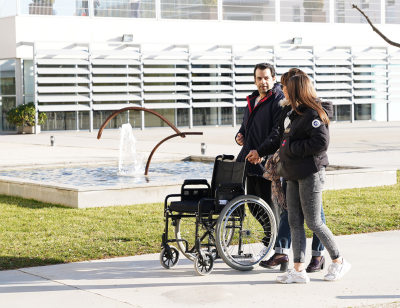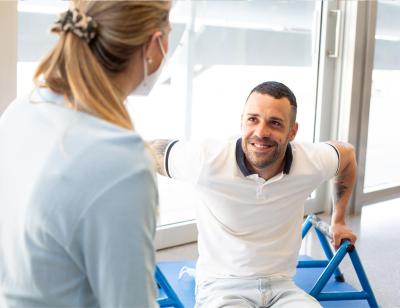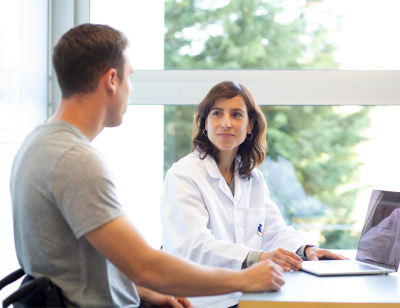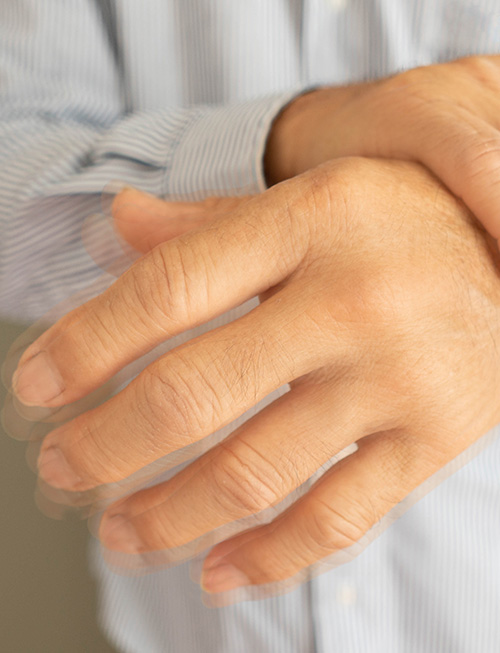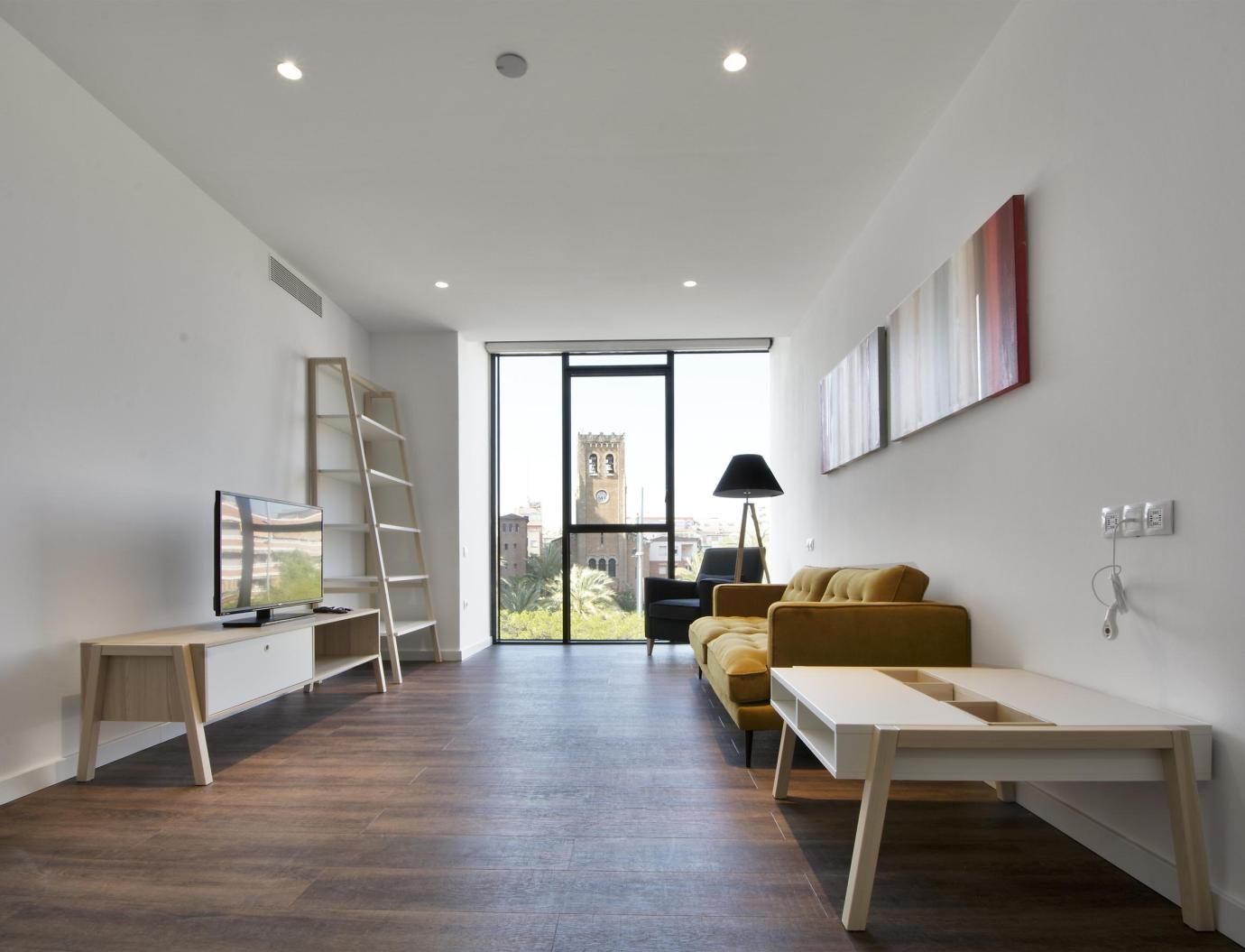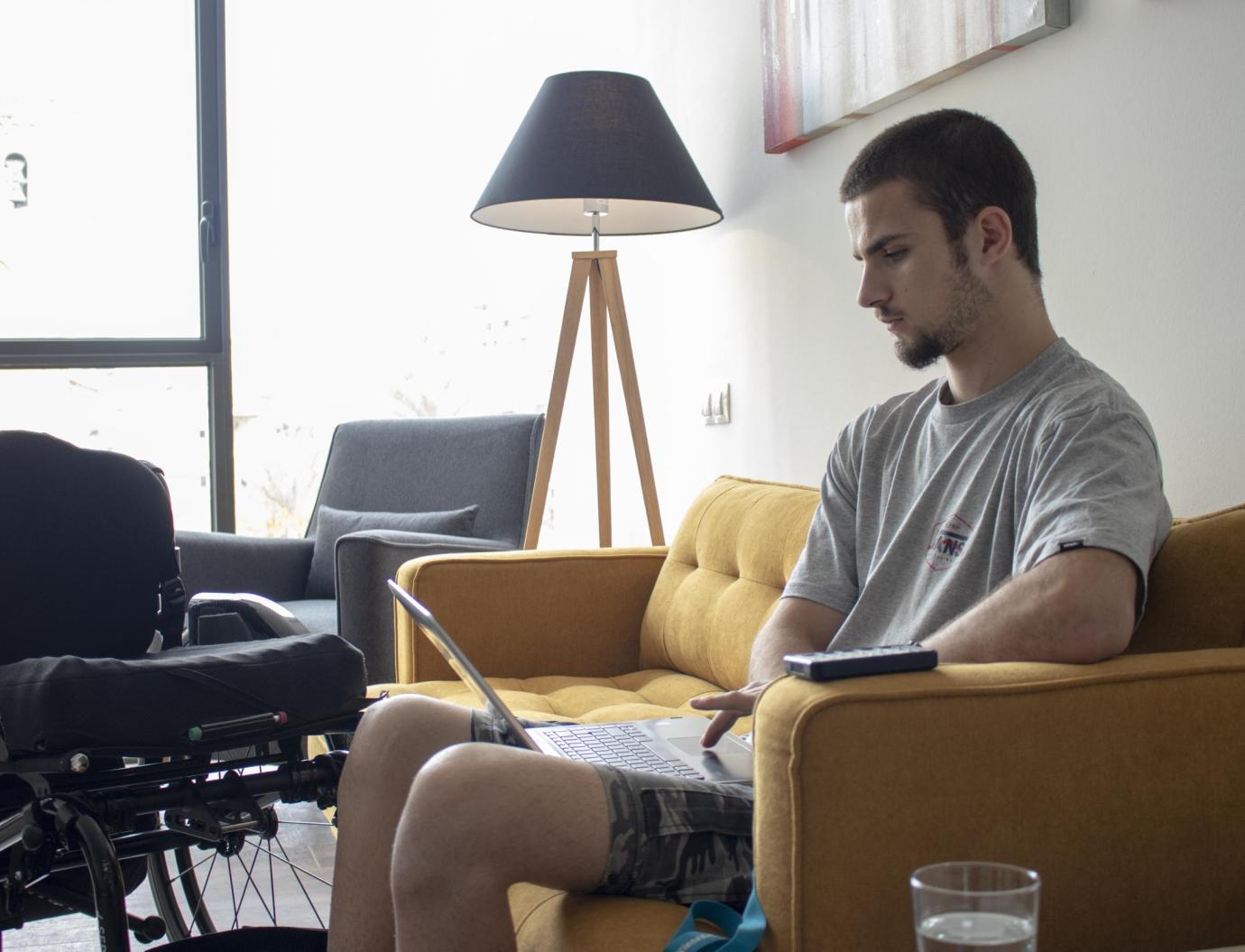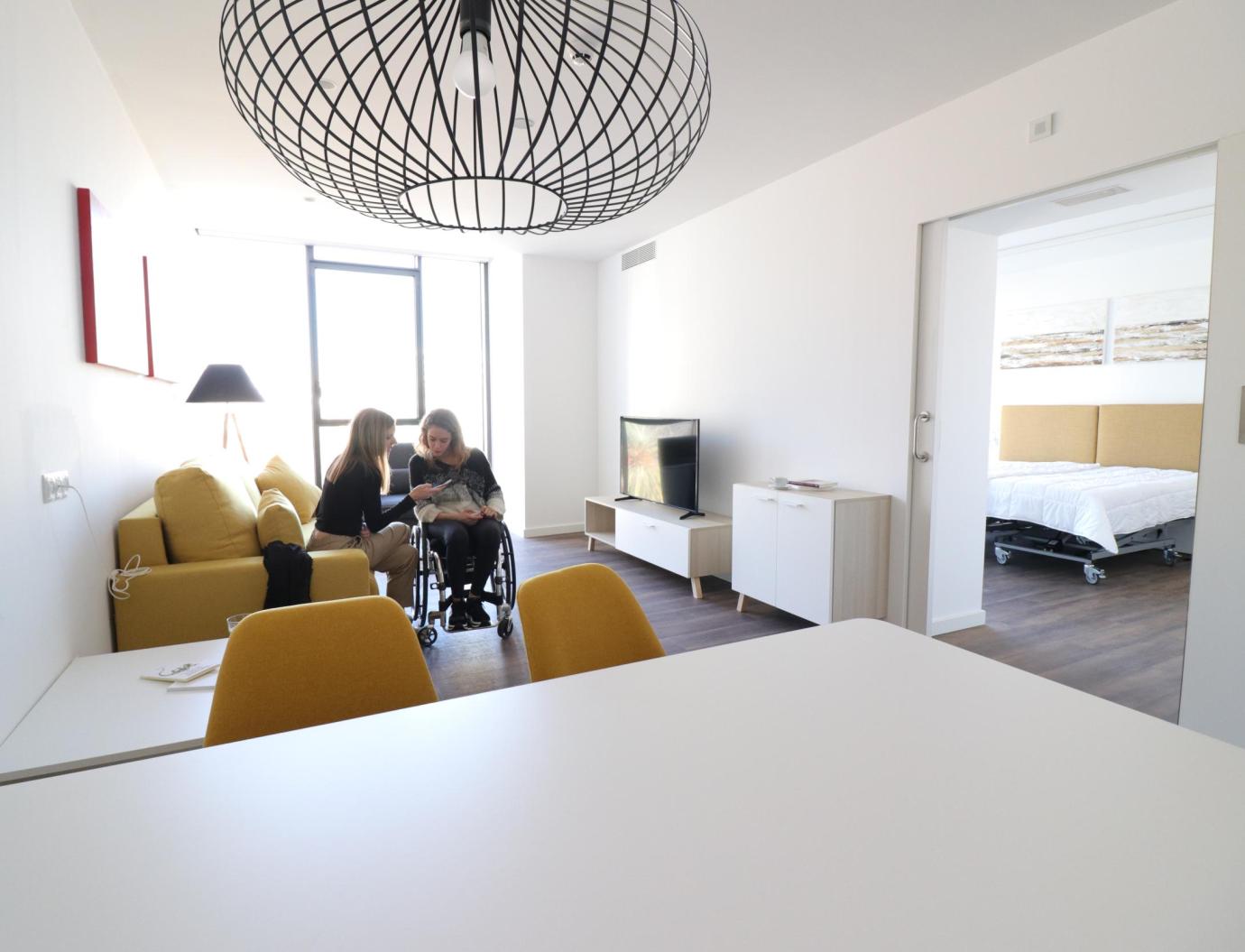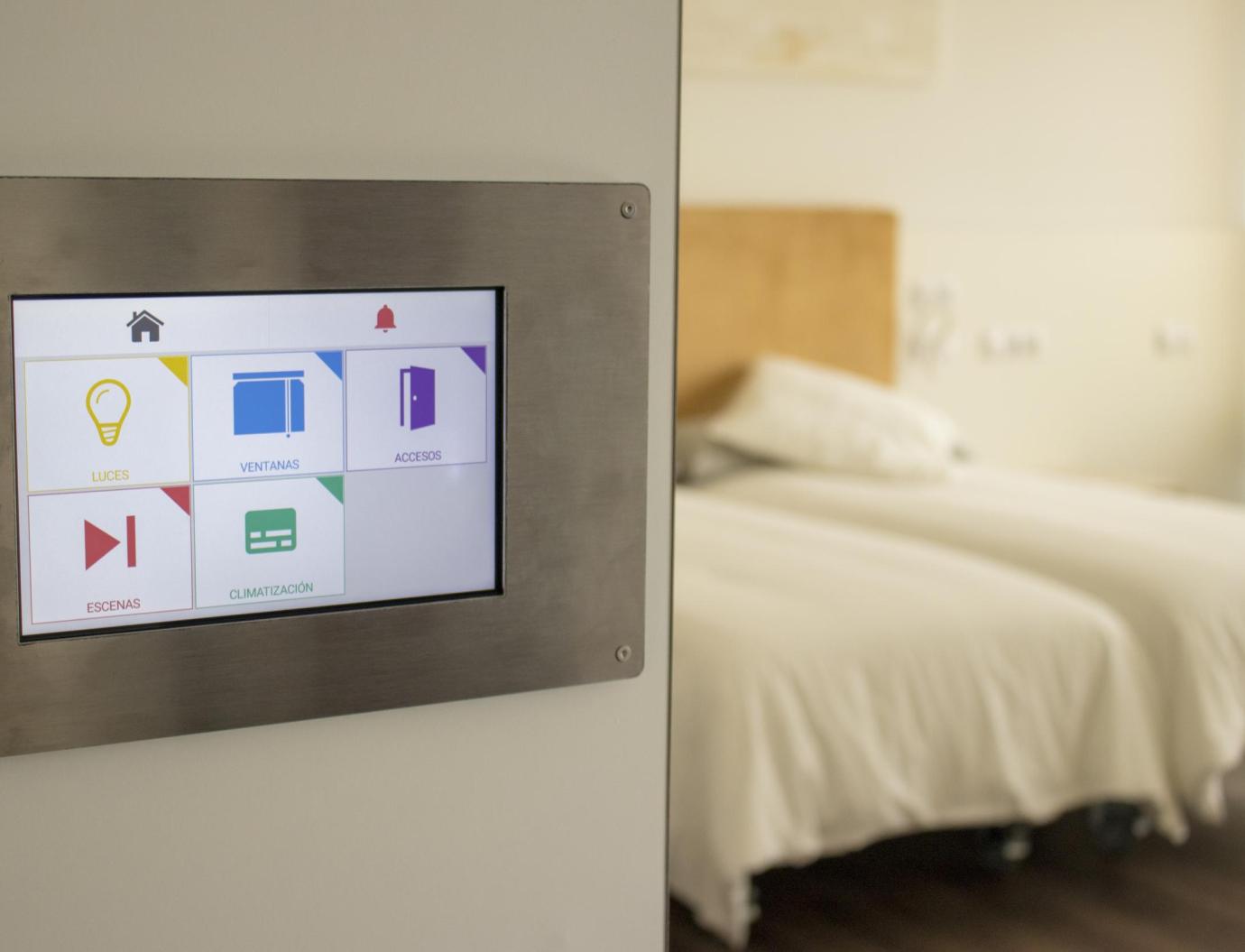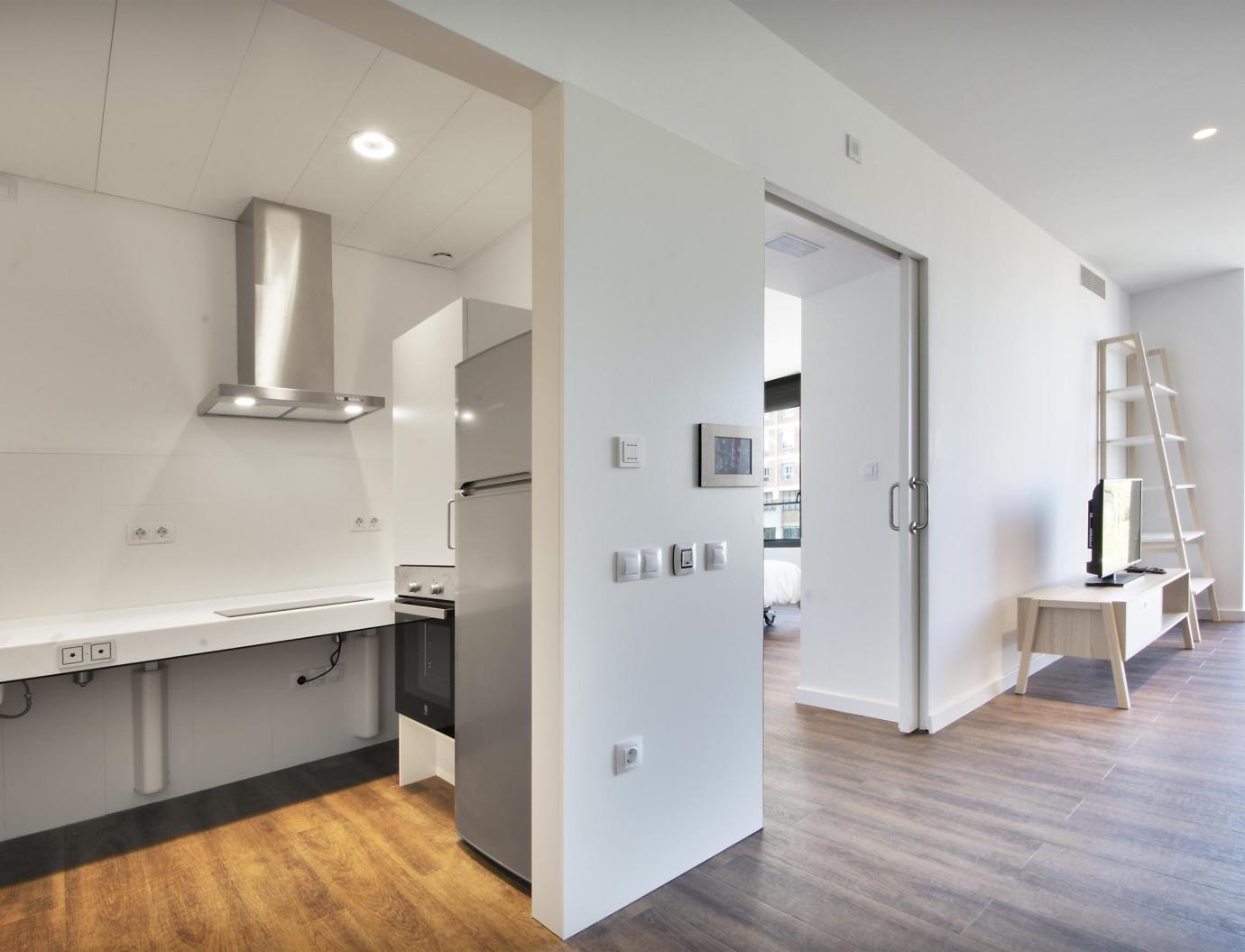Meet the Neurorehabilitation Team
Parkinson’s disease
- Tremors. They usually start in the hand or fingers. They can appear as an involuntary rubbing of the thumb and fingers (pill rolling tremor) and the hand may shake when it is in a resting position.
- Slow movement. Over time, Parkinson’s disease can slow down the patient’s normal movements, making simple tasks more time-consuming. Steps can be short and patients drag their feet when they walk.
- Muscular rigidity. This can appear in any part of the body and can be painful.
- Loss of automatic movements. Patients may have a reduced ability to make unconscious movements, such as blinking, laughing and swinging the arms when walking.
- Alterations in posture and balance.
- Changes in speech.
- Changes in writing.
Treating Parkinson’s disease at the Institut Guttmann
Treatment of Parkinson’s disease is pharmacological and surgery is indicated in some cases, although neurorehabilitation, in particular physiotherapy, may be helpful for correcting or alleviating the patient’s motor problems.
This group of diseases mainly affects mobility, as well as other spheres such as emotional, cognitive, sleep, etc. Therefore, in addition to the use of medication, we have to add rehabilitation to comprehensively address all possible problems.
- Physiotherapy: to maintain a good range of motion and avoid complications (joints, pain).
- Occupational therapy: the aim is to delay dependence as much as possible and maintain maximum functionality.
- Aerobic exercise to improve fatigue and overall quality of life.
- Individual and group exercises (including those performed in the pool) to improve coordination and balance, thereby improving gait and reducing the risk of falls.
- Treatment to improve cognitive functions when appropriate.
Training and maintenance for people affected by Parkinson’s disease
Patients can follow personalised training programmes to optimise their functional capacity or address specific problems resulting from their neurological impairment. At Guttmann Barcelona we can plan a totally personalised training and functionality improvement programme.
Get back your quality of life. At Guttmann Barcelona we offer you the personalised treatment you need for Parkinson’s disease.
Guttmann Barcelona
The Guttmann Barcelona, Brain Health and Neurorehabilitation Institute offers personalised training and function improvement programmes, as well as specialised intensive programmes.
A space that is adapted and designed for you
GBL apartments
Guttmann Barcelona Life is a social facility consisting of a group of fully adapted and automated apartments that offer a wide range of complementary services tailored to each user.
The apartments share a building with the Guttmann Barcelona Brain Health and Neurorehabilitation Institute, so it is possible to combine a stay with a specialised neurorehabilitation treatment.
References on Parkinson’s disease
Amano S1, Roemmich RT, Skinner JW, Hass CJ. Ambulation and Parkinson disease. Phys Med Rehabil Clin N Am. 2013 May;24(2):371-92.
Proud EL, Miller KJ, Bilney B, Balachandran S, McGinley JL, Morris ME. Evaluation of measures of upper limb functioning and disability in people with Parkinson disease: a systematic review. Arch Phys Med Rehabil. 2015 Mar;96(3):540-551
Zhuang X1, Mazzoni P, Kang UJ. The role of neuroplasticity in dopaminergic therapy for Parkinson disease. Nat Rev Neurol. 2013 May;9(5):248-56.
Ahlskog JE. Does vigorous exercise have a neuroprotective effect in Parkinson disease? Neurology. 2011 Jul 19;77(3):288-94
Caballol N1, Martí MJ, Tolosa E. Cognitive dysfunction and dementia in Parkinson disease. Mov Disord. 2007 Sep;22 Suppl 17:S358-66.
